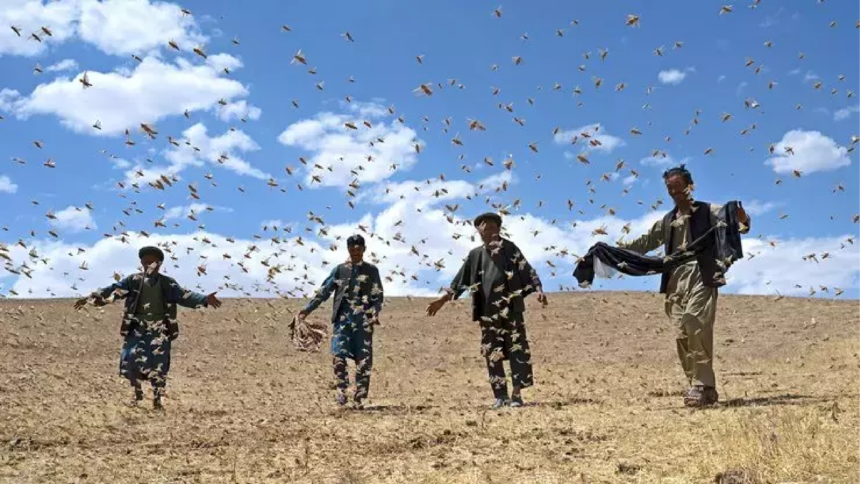RASC News Agency: The Food and Agriculture Organization (FAO) of the United Nations reported on Monday, April 7, that Moroccan locusts have invaded several regions in northern Afghanistan. These locusts have descended upon the provinces of Kunduz, Baghlan, Takhar, Samangan, and Balkh, where they are currently breeding. According to the organization’s report, this infestation poses a severe threat to agricultural lands and is expected to have a significant negative impact on crop production in the region. In recent years, this recurring threat has been a major concern for northern Afghanistan. In response, the FAO has initiated urgent measures to combat the locust outbreaks in these areas. These measures include safeguarding agricultural land, managing water resources, and working to ensure food security for rural communities.
Richard Trenchard, the FAO representative in Afghanistan, underscored the global risks posed by the Moroccan locust and stressed the necessity of large-scale campaigns to address this environmental and agricultural challenge. He also noted that in recent years, the infestation has become one of the most severe issues faced by farmers and residents in northern Afghanistan. The FAO further stated that it is collaborating with local authorities to identify and address the locust outbreaks, providing support to farmers to prevent further damage. The organization has also called on the international community to provide both financial and technical assistance in combating this threat and helping Afghanistan mitigate its agricultural challenges.
As the locust infestation continues to spread, the FAO’s intervention is critical not only for immediate relief but also for ensuring long-term agricultural stability in the affected regions. The organization is actively working to ensure that farmers are equipped with the resources and strategies necessary to protect their crops and sustain their livelihoods in the face of this crisis.






